A star is born (or made): How Jennifer Lopez succeeded in music without being a good singer
Named for the subway line that took her from the Bronx to Manhattan every morning, J.Lo’s first album catapulted her to the top of the charts, despite her voice’s limitations and even though songs like ‘If You Had My Love’ were snatched from other artists
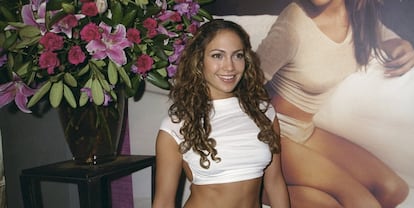
“My first impression of her was that she was probably the hungriest artist I had ever worked with or encountered,” says multiple-award-winning music producer Cory Rooney, who has worked with Michael Jackson and Destiny’s Child, of meeting Jennifer Lopez for the first time. The artist was about to turn 30, perhaps a little late by the music industry’s standards, but her commitment and talent were her calling card. It had been a few years since the Bronx native had stopped dancing on TV shows to become a promising Hollywood actress; her turn as the ill-fated “queen of Tejano music” Selena Quintanilla was her best route to a meteoric career as a performer. But Lopez — whose own voice was discarded in the film’s final cut — decided to pursue an international singing career instead of acting in Hollywood. Lopez’s successful but controversial first album, On the 6, was the first step to becoming one of the 10 most successful women in the history of the music industry, with an estimated fortune of $400 million and a media impact that continues to produce replicas 24 years later.
When Lopez released If You Had My Love, the album’s first single, over a year had passed since the last time a woman had topped the charts (Britney Spears with Baby One More Time). Lopez repeated the feat just a month after the song’s release. In addition to becoming one of the songs of the summer of 1999, it cemented Lopez’s privileged status, which she maintains to this day. Waiting for Tonight, Let’s Get Loud (co-written by Gloria Estefan) and No Me Ames [You Don’t Love Me] were other hits from an album praised by critics and the public alike, thanks to its mix of pop, disco, R&B, hip-hop and what the artist herself called “Latin soul” music. Lopez never tried to hide her Latin roots (she brought the Puerto Rican flag to her first album launch and, 20 years later, to her Super Bowl performance) and her humble origins.
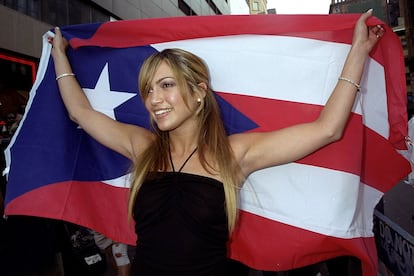
The album’s title refers to the subway line (the 6) on which she traveled every day from the Bronx to Manhattan, seeking to live the American dream. “I had never recorded music. I had only sung at shows and plays. It was one of those things where ignorance was bliss. I knew I was making an album, but you’re so young it’s not hitting you how big it is,” recalls Lopez. She headlined the Latin music explosion at the beginning of the century, which also included Ricky Martin, Marc Anthony, Shakira and Enrique Iglesias. Lopez ended up cementing her stellar position at the Grammy Awards ceremony a few months after the LP’s release; that was where she wore the iconic green printed Versace dress with a slit that inspired the creation of Google images.
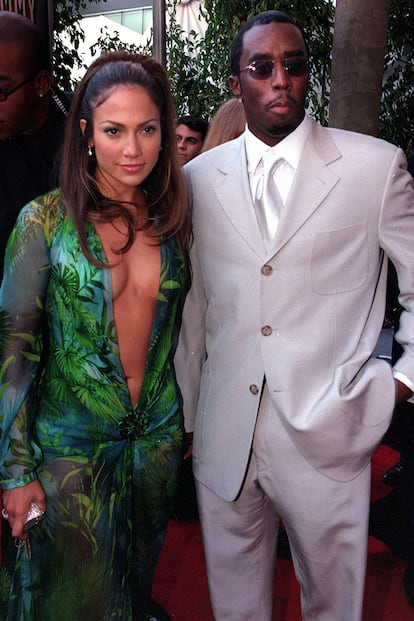
In addition to her boyfriend at the time, rapper Sean ‘Diddy’ Combs — also known as Puff Daddy — the all-powerful Tommy Mottola was the intellectual and financial mastermind behind J.Lo’s leap into the spotlight. At the helm of the Sony Music label, the executive had helped Mariah Carey — whom he had just divorced — rise to fame. “We had everybody who was anybody writing for the project. It was every great producer and hot writer at the time,” Mottola told Billboard of the creation of On the 6. Mottola’s amorous misadventures sparked the first major controversy surrounding Lopez’s first album; several sources claimed that the jilted mogul had stolen melodies and samples of future songs from his ex-wife, who had left the label after their separation, and given them to Lopez. A couple of years later, when Carey was asked her opinion about J.Lo’s global prestige, she made meme history with her legendary response: “I don’t know her.” The rivalry between the two divas continues to spill rivers of ink in the press, and from time to time, Carey and Lopez themselves seem to rekindle their feud.
The executives’ obsession with giving Lopez the best available songs even led them to take potential hits away from other artists, especially African-American musicians who were just starting out in the industry. Chante Moore denounced this behavior and claimed that Diddy demanded that producer Rodney Jerkins snatch a demo called If I Gave Love from her and turn it into the smash hit If You Had My Love.
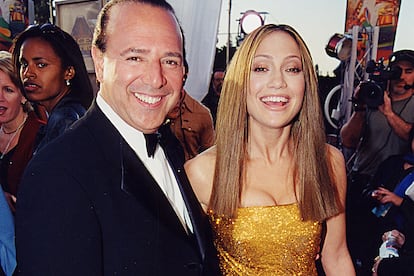
In addition, Lopez’s vocal skills were always questioned. “I would always tell her that this is no different from her acting job. Forget technique. Just close your eyes and believe in every word you’re singing. Don’t worry about where you’re standing or anything like that as far as positioning on the mic because it’s the job of the engineer to capture your voice. Just be you,” notes Rooney in the Billboard Book of Number 1 Hits. Stereogum claims that the label’s media treatment of the artist was unconventional because Lopez was not a trained singer, and it asserted that listening to her could be described as an experiment in hiding a star’s vocal deficiencies.
Indeed, singers who have gone on to illustrious careers have also admitted that they lent their voices to some of J.Lo’s hits. For instance, despite not being credited as a vocalist, Christina Milian sings the entire chorus on the song Play (Milian also wrote the song’s lyrics). The same occurred with singer Ashanti on Lopez’s singles I’m Real and Ain’t it Funny; the former’s voice was featured in the final versions despite the fact that Lopez was the only recognized singer. It also happened with Natasha Ramos in Jenny from The Block. That pattern led to article headlines like “How Jennifer Lopez Shamelessly Steals from Black Artists.” As journalist Bianca Betancourt writes in Vice, “Her career simultaneously showcases the marketing mindsets of industry executives then and now, and how Black artists have and will continue to shape the cultural landscape of art, music and beyond, whether they receive the due credit, acknowledgement and praise they deserve or not. In an age where fans demand the utmost transparency from their favorite artists, maybe a nod of acknowledgement from Lopez regarding who helped shape her musical success is all that people ask of her.”
Lopez’s reputation was nearly ruined by her romantic relationship with Combs. In 1999, at the height of her popularity, she was arrested after witnessing a shooting at a nightclub in which three people were injured. Both she and the rapper were taken into custody after he left the scene with a gun. Although they later reached an out-of-court settlement to avoid a trial, the press reported at the time that Lopez spent up to fourteen hours in a Manhattan police station lockup. The artist ended her relationship with Combs in 2001, claiming that being with someone as unfaithful as he was caused her life to become a destructive spiral: “I was totally crying, crazy and going nuts, it really took my whole life in a tailspin.” But it was nothing that a good PR team — when did the incomprehensible global obsession with her backside start? — and Lopez’s own incomparable willpower couldn’t disguise. With her next work, J.Lo, she became the first woman to simultaneously have the best-selling album of the moment while starring in the box office’s most-watched movie (The Wedding Planner). Today, at 53, the hunger that so impressed Lopez’s first collaborators remains as unsatiated as our fascination with her.
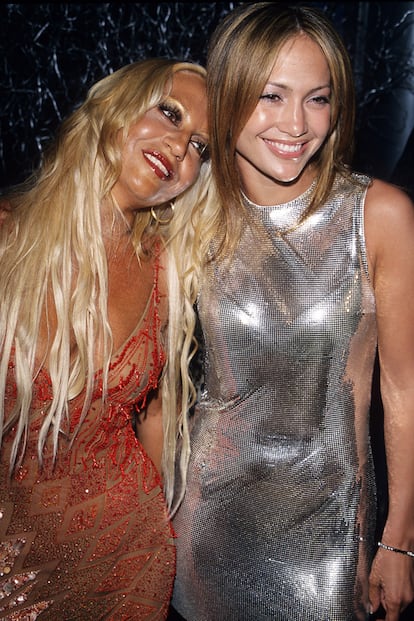
Sign up for our weekly newsletter to get more English-language news coverage from EL PAÍS USA Edition
Tu suscripción se está usando en otro dispositivo
¿Quieres añadir otro usuario a tu suscripción?
Si continúas leyendo en este dispositivo, no se podrá leer en el otro.
FlechaTu suscripción se está usando en otro dispositivo y solo puedes acceder a EL PAÍS desde un dispositivo a la vez.
Si quieres compartir tu cuenta, cambia tu suscripción a la modalidad Premium, así podrás añadir otro usuario. Cada uno accederá con su propia cuenta de email, lo que os permitirá personalizar vuestra experiencia en EL PAÍS.
¿Tienes una suscripción de empresa? Accede aquí para contratar más cuentas.
En el caso de no saber quién está usando tu cuenta, te recomendamos cambiar tu contraseña aquí.
Si decides continuar compartiendo tu cuenta, este mensaje se mostrará en tu dispositivo y en el de la otra persona que está usando tu cuenta de forma indefinida, afectando a tu experiencia de lectura. Puedes consultar aquí los términos y condiciones de la suscripción digital.









































